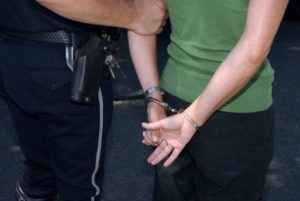The Strong Defense
You Deserve
Avoid Transgressing The Laws Of Criminal Trespass In Florida

The laws of criminal trespass in Florida frequently come into play alongside other serious criminal charges. Although it is not a felony in most cases, criminal trespass is often charged with other felonies at the same time, and it can be a felony itself under certain circumstances.
Basics
Florida law defines criminal trespass as entering or remaining in a structure or conveyance or refusing to leave a structure or conveyance or being told to leave a structure or conveyance and continuing to remain there.
Florida statutes recognize two types of criminal trespass:
- trespass in a structure or conveyance, and
- trespass on a property other than a structure or conveyance.
Under the Florida criminal trespass statute, a “conveyance” is a vehicle or a mobile dwelling, such as a car, trailer, boat, airplane, or ship, among others.
Trespass in a Structure or Conveyance
Criminal trespass in a structure or conveyance is defined in Florida as entering or remaining in a structure or conveyance without an authorization, a license, or an invitation. Also included in the statute is remaining in a structure or conveyance where one originally had license, authorization, or invitation after being warned to leave by the owner or lessee.
If the criminal trespass happened in a place that was unoccupied at the time, the crime is considered a second degree misdemeanor, punishable by up to 60 days in jail and a fine of up to $500.
However, if the place is occupied at the time of the criminal trespass, it becomes a first degree misdemeanor, punishable by up to one year in jail and a fine of up to $1,000. In the event that the criminal trespasser is armed while trespassing, the crime becomes a first degree felony, which could lead to a prison sentence of up to 30 years and a fine of up to $10,000.
Trespass Not In a Structure or Conveyance
Criminal trespass may also occur outside of buildings or vehicles. If someone enters an area that’s not a building or vehicle without permission, license, or invitation, or that person remains there after being told to leave, and that area is either posted, cultivated, or fenced, the crime of criminal trespass has occurred. Also included is being on the unenclosed curtilage (basically the yard around a home) and intending to commit some other crime while there. This crime is a first degree misdemeanor.
However, if the defendant is armed while committing the crime of criminal trespass, the crime becomes a third degree felony, which could result in a prison sentence of up to 5 years and a fine of up to $5,000.
Trespass at a School
Florida law specifies a different crime when criminal trespass happens at a school or campus. If a person is in a school or on its grounds and either does not have business there or is there without invitation, license, or authorization, or is on the grounds as a suspended or expelled student, the crime of criminal trespass is a second degree misdemeanor.
However, if the defendant is told to leave by a principle or other school administrator and fails to do so, the crime of criminal trespass becomes a first degree misdemeanor.


